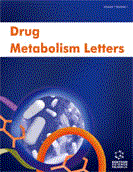Abstract
There is an increasing application of protein/peptide drugs in the treatment of various diseases such as cancer and autoimmune diseases in clinical settings. However, data is scant on the potential for modulation of cytochrome P450s (CYPs) by these protein/peptide drugs. In this study, we examined the effects of recombinant human thymosin-α1 (rh- Tα1) on hepatic cytochrome P450 (CYP) enzyme activity in rats in vitro and in vivo. For the in vitro experiments, rh-Tα1 was incubated with the probe drugs and the liver microsomes from rats, while rh-Tα1 was administered to rats subcutaneously at 150, 300, or 600 μg/kg daily for two weeks in in vivo studies. The activities of six rat hepatic CYP enzymes, namely CYP1A2, CYP2C6, CYP2C11, CYP2D2, CYP2E1, and CYP3A1/2, were determined by a cocktail of probe drugs including phenacetin (O-deethylation), tolbutamide (4-hydrolylation), omeprazole (5-hydroxylation), dextromethorphan (O-demethylation), chlorzoxazone (6-hydroxylation), and nifedipine (N-dehydrogenation), respectively. Co-incubation of rh-Tα1 at the concentration of 20 and 50 μmol/l with the liver microsomes significantly inhibited CYP2E1 activity, whereas there was no significant effect on the activities of CYP1A2, CYP2C6, CYP2C11, CYP2D2, and CYP3A1/2. As to in vivo studies, treatment of rh-Tα1 at either dosage did not significantly alter the liver weight. However, an ex vivo study demonstrated that the activity of rat hepatic CYP2E1 was significantly increased by pretreatment of rh-Tα1 at the three doses for two weeks, and the activities of CYP1A2, CYP2D2, and CYP3A1/2 were also significantly increased in rats pretreated with rh-Tα1 at 600 μg/kg. These data indicate that rh-Tα1 can modulate the activities of major rat CYP isoforms, and further studies are needed to investigate its effect on human CYP activities and the potential for causing drug interactions.
Keywords: Cytochrome 450, probe drugs, recombinant human thymosin-α1, rat
 5
5














